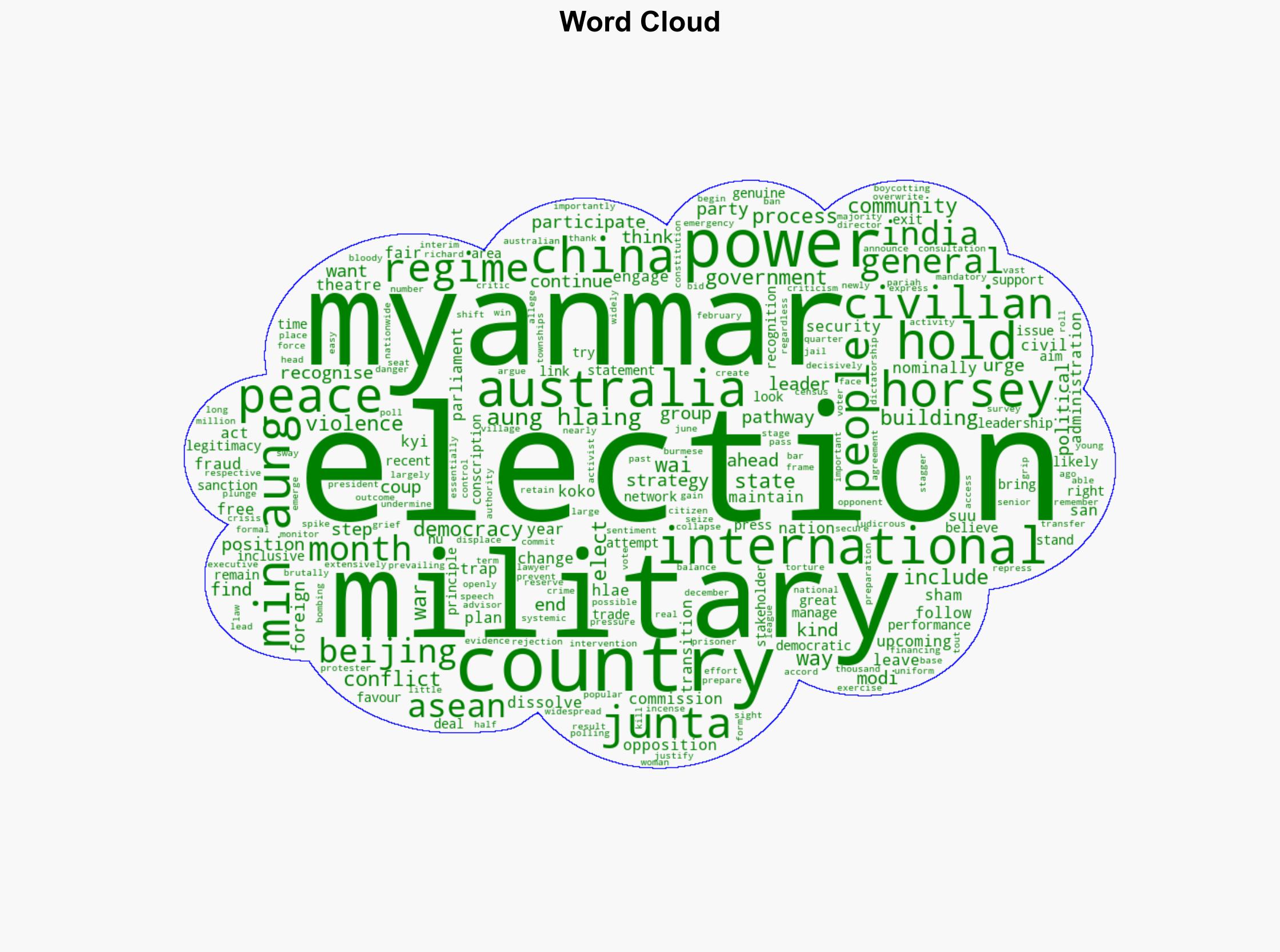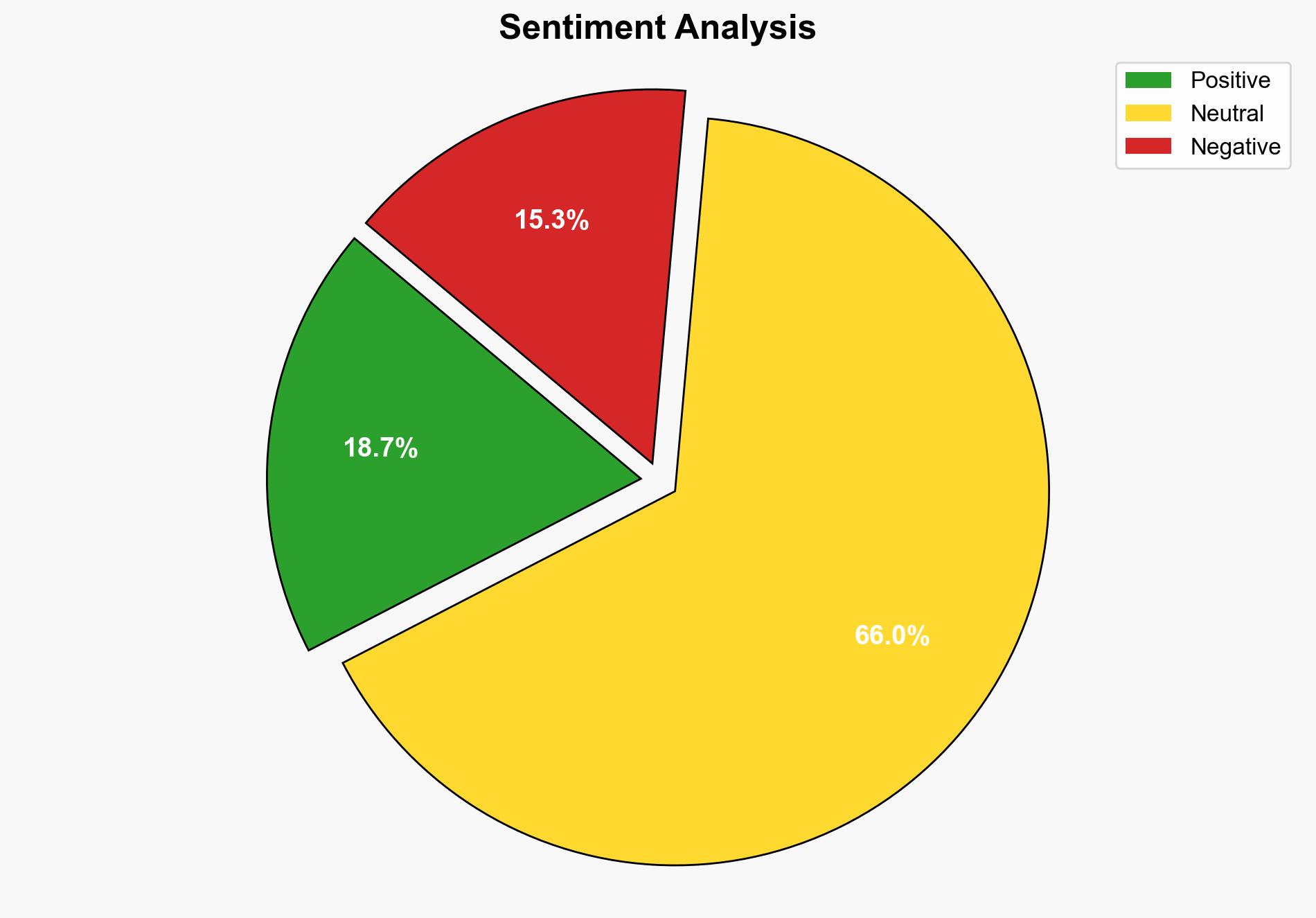Are Myanmar’s upcoming elections a ‘peace-building process’ or a ‘trap’ – ABC News (AU)
Published on: 2025-09-05
Intelligence Report: Are Myanmar’s upcoming elections a ‘peace-building process’ or a ‘trap’ – ABC News (AU)
1. BLUF (Bottom Line Up Front)
The upcoming elections in Myanmar are more likely a strategic maneuver by the military to consolidate power rather than a genuine peace-building process. This assessment is supported by evidence of ongoing military control and suppression of opposition. Confidence level: High. Recommended action: International stakeholders should prepare for potential escalation in violence and consider reinforcing sanctions to deter further military entrenchment.
2. Competing Hypotheses
Hypothesis 1: The elections are a genuine peace-building effort by the military to transition towards a stable civilian government.
Hypothesis 2: The elections are a strategic ploy by the military to legitimize its power and suppress opposition under the guise of democratic processes.
Using ACH 2.0, Hypothesis 2 is better supported due to the military’s history of power retention, the exclusion of key opposition figures, and the lack of international recognition of the electoral process. The military’s control over the election process and the reserved parliamentary seats further undermine the credibility of Hypothesis 1.
3. Key Assumptions and Red Flags
Assumptions:
– Hypothesis 1 assumes the military’s intentions are aligned with democratic principles.
– Hypothesis 2 assumes the military prioritizes power retention over genuine democratic transition.
Red Flags:
– The military’s past actions contradict their stated intentions of peace-building.
– The exclusion of opposition parties and leaders raises questions about the election’s fairness.
– The military’s ongoing control over key government functions suggests a lack of genuine power transfer.
4. Implications and Strategic Risks
The elections could lead to increased violence as opposition groups may resort to armed resistance, perceiving the process as illegitimate. This could destabilize the region further, impacting international trade routes and leading to humanitarian crises. The military’s alignment with China could also shift regional power dynamics, complicating international diplomatic efforts.
5. Recommendations and Outlook
- International bodies should monitor the elections closely and prepare to address potential human rights violations.
- Sanctions should be considered to deter military consolidation of power.
- Engage regional partners to mediate and facilitate dialogue between the military and opposition groups.
- Scenario Projections:
- Best Case: Elections lead to a negotiated settlement and gradual transition to civilian rule.
- Worst Case: Escalation of violence leads to widespread conflict and regional instability.
- Most Likely: The military maintains control, leading to prolonged internal strife and international condemnation.
6. Key Individuals and Entities
– Min Aung Hlaing
– Aung San Suu Kyi
– Richard Horsey
– Wai Wai Nu
– Koko Aung
7. Thematic Tags
national security threats, regional focus, political stability, human rights, international relations





